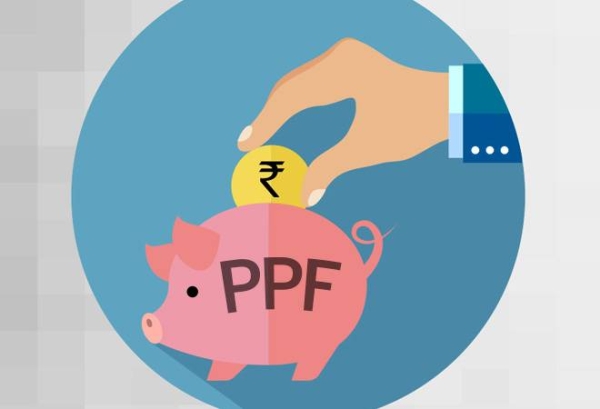Where to invest: Here are top 10 investment options to choose from
Debt mutual funds “A debt fund is a mutual fund scheme that invests in fixed income instruments, such as corporate and government bonds, corporate debt secu
- by B2B Desk 2023-08-25 10:33:13
Here's a look at 10 financial investment avenues to consider when saving for your financial goals.
Stocks
If you stay invested for the long term, investing in direct equity can generate higher inflation-adjusted returns for many other assets. However, not everyone feels comfortable investing in stocks: due to their volatile nature, returns are not guaranteed and it is difficult to pick the right stock and timing for entry and exit.
One way to reduce risk when investing in stocks is to diversify across sectors and market capitalization.
In order to invest in equity shares traded on the stock exchange, it is important to have the right accounts opened. A Demat account, a trading account, and a bank account are the three pillars that allow investors the right framework to invest in shares. Banks often offer a 3-in-1 account that allows investors to open and link all three accounts at the same time.

Equity Mutual funds
“Equity fund is a mutual fund plan that invests predominantly in equity stocks. In the Indian context, under current SEBI mutual fund regulations, a mutual fund plan must invest at least 65% of the assets of the plan in stocks and equity-related instruments. An Equity Fund can be actively managed or passively managed. Index funds and ETFs are passively managed. Mutual funds are primarily categorized by company size, investment style of the holdings in the portfolio, and geography. The size of an equity fund is determined by its market capitalization, while the investment style, which is reflected in the fund's holdings of shares, is also used to categorize equity mutual funds. Equity funds are also classified by whether they are domestic (investing in shares of Indian companies only) or international (investing in shares of foreign companies). These funds may be broad market, regional funds, or single country funds. Some of the specialized equity funds target business sectors such as healthcare, commodities, and real estate and are known as Sectoral Funds," according to the Association of Mutual Funds of India (AMFI).

Debt mutual funds
“A debt fund is a mutual fund scheme that invests in fixed income instruments, such as corporate and government bonds, corporate debt securities, money market instruments, etc., that offer capital appreciation. Debt funds are also known as income funds or bond funds. Debt funds are ideal for investors who want regular income but are risk-averse. Debt funds are less volatile and therefore less risky than equity funds. If you are been saving in traditional fixed-income products such as Term Deposits, and looking for steady returns with low volatility, debt mutual funds could be a better option, as they help you achieve your financial goals in a more tax-efficient manner and therefore earn better returns," AMFI website.

National Pension System
“The National Pension Scheme (NPS) is being administered and regulated by the Pension Fund Development and Regulatory Development Authority (PFRDA), set up under the PFRDA Act 2013. The NPS is a market-linked defined contribution product. According to NPS, a unique Permanent Retirement Account Number (PRAN) is generated and maintained by the Central Recordkeeping Agency (CRA) for individual subscribers. NPS offers two types of accounts, Tier I and Tier II. Tier I account is the pension account having restricted withdrawals. Tier II is a voluntary account that offers Liquidity investments and withdrawals. It is allowed only when there is an active Tier 1 account in the name of the subscriber. The contributions accumulate over a period of time till retirement grows with market-linked returns. On exit/ retirement/superannuation a minimum of 40% of the corpus is mandatorily utilized to procure a life pension by purchasing an annuity from a life insurance company and the balance corpus is paid as lumpsum," as per the Department of Financial Services website.
Public Provident Fund (PPF)
PPF is a 15-year plan, which can be extended indefinitely in a 5-year block. It can be opened in a designated post office or bank branch. It can also be opened online with a few banks. Transfer of a PPF account from the post office to a bank or vice versa is allowed. Anyone of any age can open a PPF account; Even those who have an EPF account can open one. You can deposit up to 12 times a year but remember to deposit before the 5th of the month to get interest for the entire month, as interest is allowed on the lowest account balance at the credit of an account from the close of the 5th day and the end of the month. Many investors deposit a lump sum deposit at the beginning of the financial year. There are also provisions to take loans and make partial withdrawals from the scheme as well.

Bank fixed deposit (FD)
Term bank deposits are a relatively safer option (than equity or mutual funds) for investing in India. Under the Deposit Insurance & Credit Guarantee Corporation (DICGC), each depositor in the Bank is insured up to a maximum of Rs 5 lakh from 4th February 2020 for both principal and interest amount.
Earlier, the coverage was at a maximum of Rs 1 lakh for both the principal amount and the interest amount. Depending on your need, you can choose the monthly, quarterly, half-yearly, yearly, or cumulative interest option in them. The interest rate earned is added to the income and taxed as per one's income slab.

Senior Citizens' Saving Scheme (SCSS)
As the name suggests, only senior citizens or early retirees can invest in this scheme. Anyone can be availed from a post office or a bank by anyone above 60.
SCSS has a five-year tenure, which can be extended for an additional three years once the scheme matures. The SCSS interest rate is payable quarterly and is fully taxable. Remember that the interest rate on the scheme is subject to review and revision every quarter.
Keep in mind that the interest rate will remain the same for the duration of the investment once it is completed. Interest will be paid quarterly and will be applicable from the date of deposit to 31st March/30th June/30th September/31st December.
The minimum investment is Rs 1,000 and the maximum investment is Rs 30 lakh. If there is an excess amount in the SCSS account, the excess funds will be refunded to the depositor immediately, and the interest rate on the savings account will only be in effect from the date of the excess until the date of reimbursement.
Senior citizens can claim a deduction of up to Rs 1.5 lakh under Section 80C of the Income Tax Act, 1961 for investment in the Senior Citizens' Savings Scheme

Real estate
The house you live in is for self-consumption and should never be considered an investment. If you do not intend to live in it, the second property you buy can be your investment.
The location of the property is the most important factor that will determine the value of your property as well as the rental income it can generate. Investments in real estate deliver returns in two ways: capital appreciation and rentals. Unlike other asset classes, real estate is extremely illiquid.

Gold
Possessing gold in the form of jewelry has its own concerns, such as safety and high cost. Then there are " making charges," which typically range from 6 to 14 percent of the cost of gold (and may go as high as 25 percent in the case of special designs). For those who want to buy gold coins, there is still an option.
An alternative way to own gold is through paper gold. Investing in paper gold is more cost-effective and can be done through gold ETFs. This investment happens on stock exchanges such as NSE and BSE with gold as the underlying asset. Investing in sovereign gold bonds is another option for owning paper gold. An investor can also invest via gold mutual funds.

RBI Floating Rate Savings Bond
The interest rate on the RBI savings bond is linked to the National Savings Certificate. The interest rate on the RBI floating rate savings bond has a spread of 0.35% above the NSC interest rate. Any change in the NSC interest rate will be reflected in the interest rate offered on RBI savings bonds. Thus, by adding a spread of 0.35% to the current NSC interest rate, the RBI Savings Bond rate comes to 8.05%. Unlike the NSC, which is reviewed quarterly, the interest rate on RBI Savings Bonds is reviewed semi-annually. The minimum investment in these debentures starts at Rs 1,000 with no maximum amount. The bonds have a fixed tenure of seven years. Premature withdrawals are allowed for individual investors whose age is 60 years and above, subject to a minimum lock-in period that depends on the age of the bondholder. These bonds do not offer the pay interest on a cumulative basis (at the end of the bond's maturity period). The interest amount is paid out half-yearly on January 1 and July 1 every year.
Also Read: Best Tax Saving Investment & Schemes for FY 2023-24
POPULAR POSTS
Best Silver Investment Platforms for 2025: From CFDs to Digital Vaults Explained
by Shan, 2025-10-23 12:22:46
Best Investment Plans in India for 2025: A Complete Guide to Grow and Protect Your Wealth
by Shan, 2025-09-18 10:20:46
Which venture capital firms are the most active in funding Indian startups in 2025
by Shan, 2025-08-06 10:42:11
Top 5 Apps to Buy Digital Gold in India (2025): Safe, Simple & Secure
by Shan, 2025-08-01 10:24:51
10 Highest Dividend Yield Stocks in August 2025
by Shan, 2025-07-28 09:31:02
Exchange-Traded Fund (ETF): A Practical Guide to Smart Investing
by Anmol Chitransh, 2025-04-17 10:18:20
The Ultimate Guide to Commodity Trading: Strategies, Risks, and Opportunities
by Anmol Chitransh, 2025-04-02 07:06:01
RECENTLY PUBLISHED

Loan EMIs to Drop as RBI Slashes Repo Rate - Full MPC December 2025 Highlights
- by Shan, 2025-12-05 11:49:44

The Agentic Revolution: Why Salesforce Is Betting Its Future on AI Agents
- by Shan, 2025-11-05 10:29:23

Pine Labs IPO 2025: Listing Date, Grey Market Premium, and Expert Outlook
- by Shan, 2025-11-05 09:57:07

Top 10 Insurance Companies in India 2026: Life, Health, and General Insurance Leaders Explained
- by Shan, 2025-10-30 10:06:42

OpenAI Offers ChatGPT Go Free in India: What’s Behind This Big AI Giveaway?
- by Shan, 2025-10-28 12:19:11





 Subscribe now
Subscribe now 